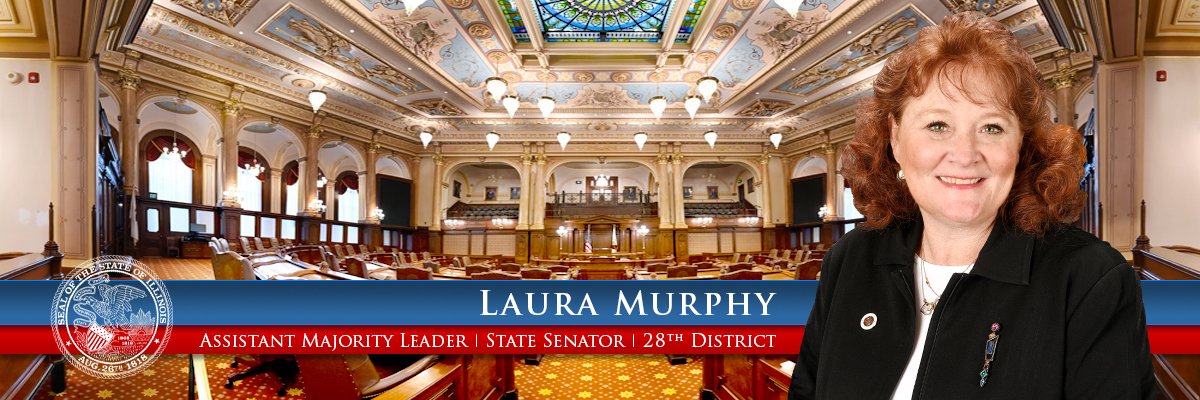Murphy moves to tighten restrictions on golden parachutes for university administrators
- Details
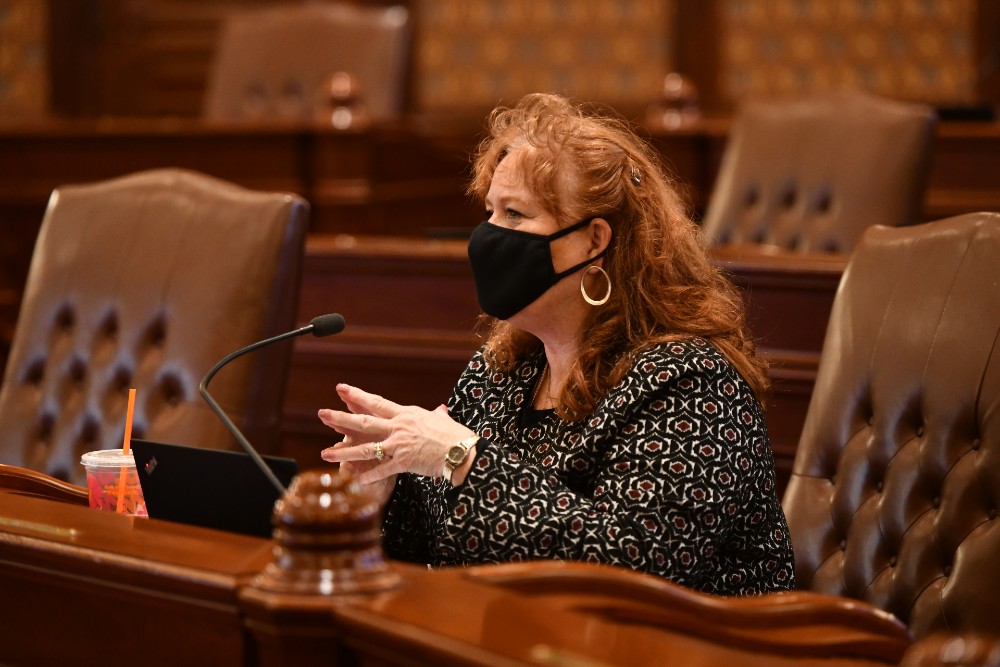 SPRINGFIELD – In an effort to crack down on university administrators who continue to exploit loopholes in the law by receiving massive payouts, or “golden parachutes,” after leaving their positions, State Senator Laura Murphy (D-Des Plaines) has advanced an initiative to strengthen current rules against the practice.
SPRINGFIELD – In an effort to crack down on university administrators who continue to exploit loopholes in the law by receiving massive payouts, or “golden parachutes,” after leaving their positions, State Senator Laura Murphy (D-Des Plaines) has advanced an initiative to strengthen current rules against the practice.
Lawmakers passed the Government Severance Pay Act in 2018 to limit the amount paid in university severance packages. Murphy’s measure strengthens the act by expanding the definition of severance pay and defining limits on compensation.
“The intent of the Government Severance Pay Act was to protect taxpayers and students from being forced to bankroll administrators’ six-figure paychecks for years after they’ve resigned from service to the school,” Murphy said. “This initiative will tighten up the language of that legislation to ensure it serves its purpose.”
Universities typically offer severance packages to end an employment agreement without litigation or arbitration. Upon resignation, many public university administrators are awarded severance packages that pay amounts equal or nearly equal to their entire salary, even in cases of declining university performance under their leadership.
Senate Bill 2240 expands the definition of severance pay to include employees who are transitioning to a new position within a unit of government. It also limits the compensation that employees may receive to the annual compensation of the highest paid employee in their department.
“Our state’s education system must reinvest tuition and taxpayer dollars responsibly, with a focus on serving students and communities,” Murphy said. “Limiting administrative costs is an important step toward making and keeping education affordable for Illinois students.”
Senate Bill 2240 advanced out of the Higher Education Committee and now goes before the full Senate.
Murphy pushes for stronger privacy protections for Illinois travelers
- Details
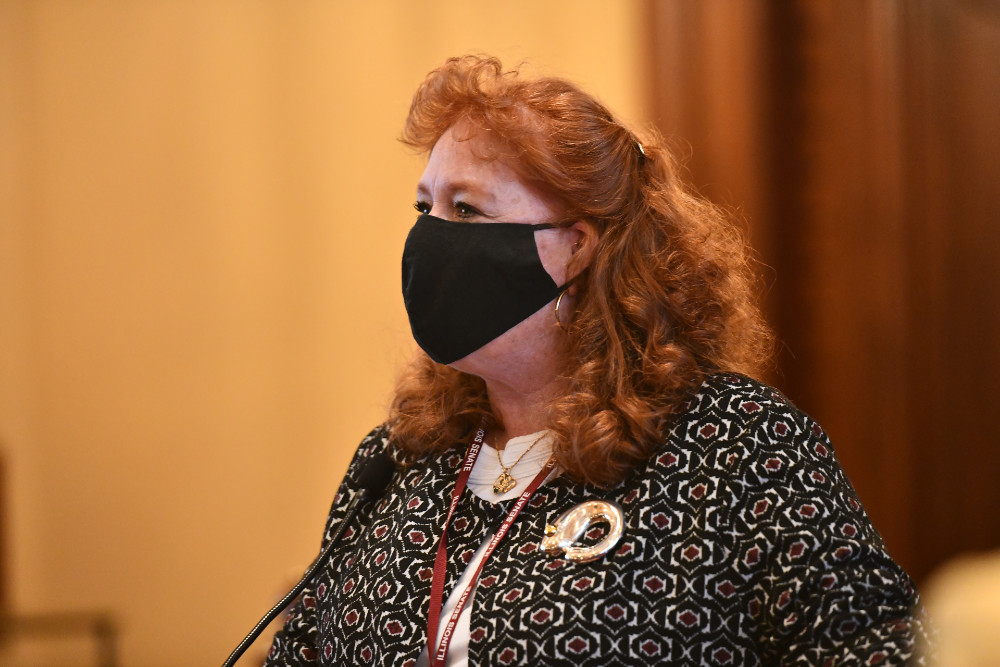 SPRINGFIELD – To close loopholes that currently allow the Illinois Tollway Authority to share Illinois drivers’ personal information and travel records with law enforcement, federal prosecutors and private attorneys, State Senator Laura Murphy (D-Des Plaines) sponsored legislation to limit the instances in which this data can be shared.
SPRINGFIELD – To close loopholes that currently allow the Illinois Tollway Authority to share Illinois drivers’ personal information and travel records with law enforcement, federal prosecutors and private attorneys, State Senator Laura Murphy (D-Des Plaines) sponsored legislation to limit the instances in which this data can be shared.
“Your travel history is your business. When that information is shared without valid cause, it’s a clear violation of drivers’ privacy,” said Murphy. “We need to put stronger protections in place to keep people’s personal information safe.”
In 2019, reports revealed that the Illinois Tollway Authority was openly sharing drivers’ travel data with local police departments and divorce attorneys. The data showed individuals’ movements on state tollways, in addition to personal contact information, license plate numbers and more.
Under Murphy’s bill, private data derived from toll collections could only be released for toll collection purposes and pursuant to law enforcement investigations. Except in cases of emergency, police departments would be required to have a warrant or subpoena in order to obtain a driver’s information from the Tollway.
Any personally identifiable information connected to travel data would have to be deleted from Illinois Tollway Authority records within five years.
“Unless you’ve committed a crime, lawyers and law enforcement don’t need to know your whereabouts,” said Murphy. “Illinois needs to take action to make sure we’re maintaining the level of privacy people deserve.”
Senate Bill 2235 passed the Senate Judiciary Committee and now heads to the full Senate.
Murphy: Local schools set to receive over $177 million in federal funding
- Details
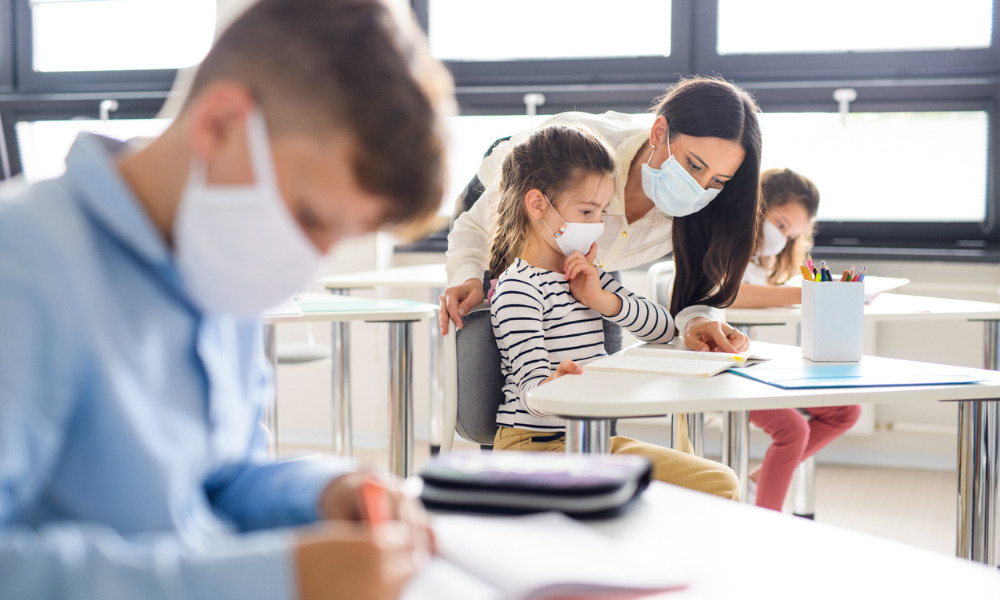 SPRINGFIELD – State Senator Laura Murphy (D-Des Plaines) is announcing that school districts in the 28th Senate District will receive $177,711,359 in additional funding to help address the many challenges presented by the COVID-19 pandemic.
SPRINGFIELD – State Senator Laura Murphy (D-Des Plaines) is announcing that school districts in the 28th Senate District will receive $177,711,359 in additional funding to help address the many challenges presented by the COVID-19 pandemic.
“Over the past year, teachers and parents have put in thousands of hours of additional effort to keep our kids engaged in learning,” Murphy said. “This funding gives schools and students the support they need to make a full recovery after the pandemic.”
The funding comes as part of the most recent federal COVID-19 relief package. Schools, students and parents have overcome challenges that no one could have imagined before the pandemic began, including remote and hybrid learning, digital connection issues, new processes for receiving state and federal aid that normally flow through schools, and more.
Local school districts are set to receive the following amounts:
- School District U-46 - $95,027,296
- Schaumburg Community Consolidated School District 54 - $18,762,224
- Community Consolidated School District 59 - $12,435,762
- Des Plaines Community Consolidated School District 62 - $10,129,759
- Park Ridge Consolidated Community School District 64 - $2,040,685
- Maine Township High School District 207 - $8,389,466
- Keeneyville School District 20 - $2,636,287
- Lake Park Community High School District 108 - $2,333,579
- Township High School District 211 - $13,400,938
- Township High School District 214 - $12,555,363
The majority of the funding comes from the American Rescue Plan, which gives local schools a great deal of flexibility in how they can use the money over the next 3 ½ years. At least 20% of the funding must be used to address learning loss, but beyond that, school districts can use the money to address many different issues and costs. For example, it can be used to better equip schools for safe learning, to prevent layoffs, to address students’ social and emotional needs, to fund summer programs, or to ensure all students have access to reliable Wi-Fi and technology.
The State Board of Education, in collaboration with other state agencies that address education, has produced a guide for local school districts to help them decide how to best use their resources. While the guide and other state-sponsored services are completely voluntary, the state aims to support local districts during this difficult time.
“Our local schools have the ultimate say in how they use this funding—as they should,” Murphy said. “But, this guide can provide them some direction as they make plans for the future.”
In total, Illinois received nearly $7 billion to support local school districts.
Murphy moves to reinstate Restore Illinois reopening commission
- Details
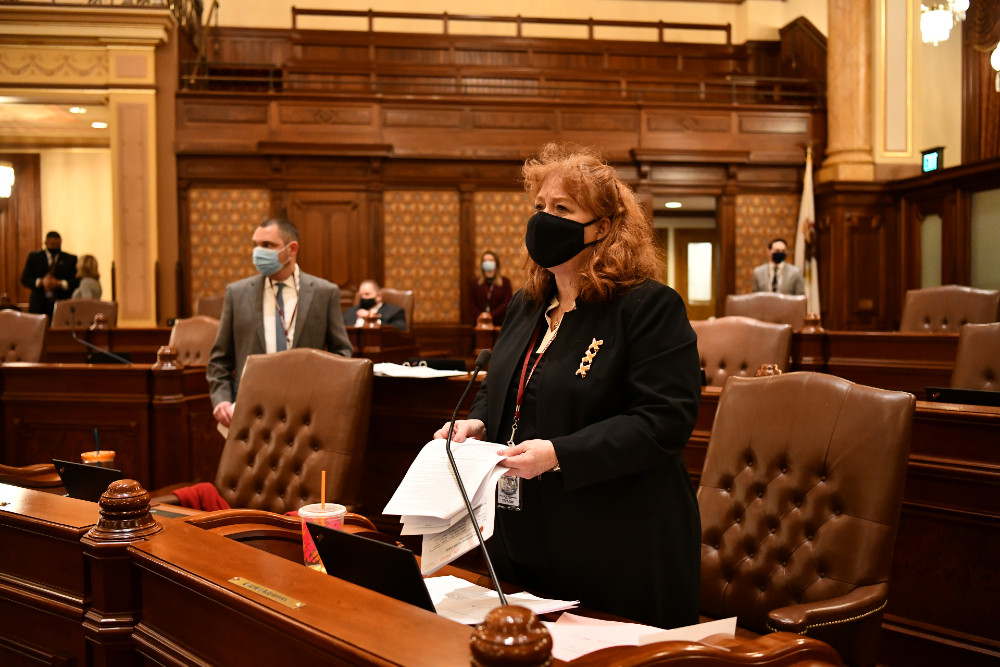 SPRINGFIELD – As Illinois moves toward a full reopening following the COVID-19 pandemic, State Senator Laura Murphy (D-Des Plaines) wants to ensure the legislature is involved in the decision-making process by reinstating the Restore Illinois Collaborative Commission.
SPRINGFIELD – As Illinois moves toward a full reopening following the COVID-19 pandemic, State Senator Laura Murphy (D-Des Plaines) wants to ensure the legislature is involved in the decision-making process by reinstating the Restore Illinois Collaborative Commission.
“The Restore Illinois Collaborative Commission gives legislators a chance to raise and address not only our own concerns, but the concerns we’re hearing from individuals in our communities,” Murphy said. “Our involvement in the reopening process is critical to ensuring Illinois’ families and businesses make a full recovery.”
Murphy’s proposal would reenact the Restore Illinois Collaborative Commission, a bipartisan, bicameral commission created last May to monitor and help shape the state’s economic recovery plans after the COVID-19 crisis.
The commission met from July through December 2020, joined by representatives from a variety of state agencies to ask questions and offer feedback to help advance the state’s recovery.
The commission originally sunset on Dec. 31, 2020, but in light of the continuing challenges of the pandemic, Murphy’s initiative would extend the operation of the commission by two years to Jan. 1, 2023.
“From the vaccine rollout to the relaxation of capacity limits, the state faces a lot of important decisions over the next few months,” Murphy said. “The executive branch doesn’t work in a vacuum—the people of Illinois must be heard when plans are being made.”
Senate Bill 632 passed the Commerce Committee Thursday and now heads to the full Senate.
More Articles …
Page 59 of 137
